- Home
- Dornford Yates
Safe Custody and Laughing Bacchante Page 3
Safe Custody and Laughing Bacchante Read online
Page 3
So eager was I to be gone that I could hardly wait while Hubert and Stiven scoured the kitchen for any of our belongings that might have been dropped by the thieves, and when at last they emerged with nothing to show but one of my cousin’s pipes, I set the pace down the road at a steady four miles an hour.
And here I should say that Harris had left me my wrist-watch as well as my great-uncle’s ring. Had he dreamed of their importance, he would, of course, have taken them first of all, and, as is so often the way, this one mistake that he made was to cost him extremely dear.
We had walked some two miles when we came to a fork in the road, and not one of us could remember which was the way we had come. After a little discussion we bore to the right, a decision which proved to be wrong, for we not only found no inn but presently came to a mighty head of water that fell so close to the road that none that had gone by that way could have failed to know it again. At once we turned to make our way back to the fork, but between our fatigue and the darkness—for heavy clouds had come to obscure the moon—we must have missed our way, for we could not find the scene of our error and after an hour had gone by were hopelessly lost. To add to our troubles, it started to pour with rain, and though we went heavily on in the hope of seeing some light which would spell shelter, even that relief was denied us, and if indeed we passed dwellings, these were either in darkness or kept from our eyes by trees. At last, about eleven o’clock, we made out some shape which was not natural a little way back from the road. This proved to be a great barn in which there was stacked a good deal of last year’s hay. Here, without hesitation, we decided to pass the night, for, if we were hungry, at least the shelter was good and the hay would make us a more agreeable bed than we should have found at the inn we had set out to seek.
And so, no doubt, it did. But if we had thought to sleep well we were disappointed, for though, God knows, we were weary, we wanted food, and our lives had been so soft that our stomachs, like peevish children, were most importunate. In the end, however, from dozing, we fell asleep—so far as I was concerned, to be troubled by dreadful dreams which sprouted, of course, from the hotbed of our adversity.
The sun was up before Hubert touched my arm, and I sat up stiff and hungry, but feeling greatly refreshed. Then I stumbled out of the barn, to find a lovely morning and the world about me as gay as the cloudless sky. The air was still and seemed as full of scents as a perfumer’s shop, and the sparkle of the meadows in the sunshine and the long, clean-cut shadows of neighbouring trees made up as taking a foreground as ever I saw. On every side the delicate green of woodland stood up to touch the blue, and this was alive with the songs of innumerable birds, brave enough music to lift up any man’s heart.
We made what toilet we could at a tumbling rill, and, feeling, all things considered, remarkably well, regained the road and set out to walk for our breakfast without more ado. By now we were fully determined to visit the first house we saw and would have marched up to a palace and stated our needs: but, such is the way of Fortune, before we had gone two miles we came to a good-looking inn, with limes growing in its forecourt and a doorway which would have admitted a coach and four.
We were too much relieved to see it to dwell on the fact that we had lain cold and hungry so short a distance away, and when we saw that its doors and shutters were open we could have thrown up our hats. Compared with this house, the tavern we had sought was a hovel, and from what we had seen of the district we had not supposed it could boast so inviting an inn.
As we entered the court—
“One word,” said Hubert, “before we take the tide. They won’t understand our conversation: but, if we use the word, they’ll get ‘Hohenems’ all right. So don’t call the place by name. Harris has laid us low. Well, let’s stay there. If we want to get back on the blackguard, it’s quite a good place to be.”
With that, he told Stiven to wait, and he and I walked into the hall of the inn. I call it ‘the hall’ because it deserves that name, but, while it was flagged and ushered a handsome staircase of old, grey oak, it was also very plainly the public room of the house. There were chairs and tables about, and a mighty settle was gracing each side of the hearth, while the place ran the depth of the inn and two-thirds of its length.
There was no one there, but a doorway led us into a kitchen as fine as the hall, and there we found the people breaking their fast.
The host and his wife and two servants—a man and a maid—were seated about a low stool on which stood a rude, iron pot. Each had a spoon in his hand, and they dipped in order into the vessel, looking very solemn and speaking no word, as though they were observing some notable rite.
Though they saw us, they took no more notice than if they had been at their prayers, and nothing could have been plainer than that, while they might forgive our intrusion, they did not expect us to aggravate our mistake. We, therefore, withdrew in silence and took our seats in the hall, and after perhaps five minutes the host and his wife appeared. Though we could not understand what they said, they seemed to be full of goodwill, and when we spoke helplessly of breakfast, they haled us into the kitchen and showed us bread and butter and ham and eggs.
We made no attempt to hide our surprise and pleasure at their choice of a bill of fare, and for this they seemed to be waiting, for they laughed a great deal and kept pointing up at the ceiling—a gesture which we could not interpret, unless it were meant to suggest that they were inspired.
We then made them understand that we wished to be served in the forecourt, under the limes, and, summoning Stiven, gave him into their charge.
It follows that in a quarter of an hour we sat down to as fine a breakfast as any could wish, and I must confess I was never so thankful for food. What was more, the prospect of bathing and having our linen washed seemed not at all remote, for nothing could have exceeded the respect and kindly attention which we were shown.
We were halfway through our meal before I happened to notice that we were observed.
At an open window above us a man who was dressed in pyjamas was steadily regarding our feast. His folded arms were resting upon the sill, and his hair was rumpled as though he were just out of bed. His eye was merry, his countenance ruddy and cheerful, his head and shoulders those of a Hercules: though I judged him to be about thirty, he was inclined to be fat, and he had the air of a Touchstone, or perhaps I should say of one who believes in motley and finds it the only wear. I could hardly believe he was English, and yet I could hardly believe he was anything else.
Hubert saw me looking and followed my gaze.
“Oh, it can’t be true,” said the stranger, averting his eyes. “I ate too much of that pie.”
“No, you didn’t,” said Hubert.
“Well, I’m damned,” said the other, and fingered his chin. “And what are you doing here in this one-eyed Arcady, where only man is dull. Believe me, the shepherds have no pipes.”
Before we could answer—
“Never mind,” he said. “I’m not curious. Besides, you shall tell me anon. And now do go on eating: it does me good.” He raised a stentorian voice. “Amaryllis, my bath.” A shriek of delight from the kitchen answered his call. “I address them in English,” he continued, “because German is a barbarous tongue. I’ve explained that to them and they admit it, but their progress is lamentably slow. You must know, I was once a tutor. A tutor hired to teach English to the scion of an Austrian House. But three days ago I flung off the yoke of bondage and shook the dust of Haydn from off my feet. . . .” As I kicked Hubert under the table, I felt him kick me. “Which reminds me, you don’t happen to have a nail-file, have you? No, I thought not. I never met anyone who had. And now I must rise. I’m simply dying to meet you, but the flesh must be served.”
With that, he burst into song and disappeared, but his voice was big and pleasing, and I know that we sat in silence until he had done.
Then—
“A tutor,” breathed Hubert. “Lately at the House of Haydn and
now at a loose end. If he would come in with us. . . . I mean, what would Harris give for such assistance? Harris can’t talk German—I’ll lay to that.”
This shining prospect seemed almost too good to be true: no wind, we felt, could set so dead in our favour, and we made up our minds that before we broached the matter we must see more of our friend. In any event he could help us to deal with our present plight and could tell us where we were and how we best could purchase the things we must have. This was a great relief. Indeed, for the first time since our misfortune we now felt able to give our minds to Harris and to how we should go to work to recover our rights.
Many, I suppose, would have posted back to London and told my great-uncle’s lawyer the whole of the truth: but, though he was kindness itself, he was less man than attorney, and the dry and dusty channels to which he would surely have turned would have put in peril the whole of our enterprise. Nothing could be more certain than that Harris was wasting no time: he knew that any moment he might be unmasked: and so he would labour like fury to find out Hohenems’ secret before his black race was run.
Again, we might have invoked the aid of the local law: but this would have meant that we should be asked for credentials we could not produce and that, when we had climbed that fence, we should have to sit still while our champions disputed with Harris, who would doubtless instruct some lawyer and put up the bluff of his life.
We, therefore, determined to take the law into our hands and act for ourselves, for, while in this way we should be wasting no time, we could go what lengths we pleased, because, though we did him violence, Harris could not afford to call in the police.
We then considered the position which we proposed to attack.
This was formidable.
In the first place, our enemy was in possession. In the second, he knew far more of Hohenems than either Hubert or I. In the third, he had stolen from us the very equipment we needed to bring him down.
It was this last consideration which troubled us most: indeed, it seemed that, except for our fifty pounds, we had only our wits and our hands upon which to rely. The name and address of the agent who was to have paid us such money as we required, were with the rest of our papers in Harris’ hands: but in any event we had no passports to show him, and though we could write to London to stop our letters and cheques, unless we returned to England, we could do nothing more without arousing suspicions which must recoil upon us. At our first attempt to get money, inquiries were sure to be made, and, if Harris had altered our passports to suit himself, we should appear the impostors and might come under arrest.
“In fact,” said’ Hubert, “we’re not so much treading thin ice as wading in slime. Whatever we touch we shall foul, so we’d better touch as little as ever we can. We’ll stop all letters and cheques, and leave it there. That’ll embarrass Harris and won’t harm us. And if we begin to run short before we’ve got Harris down, you or I will have to go back to England to raise the wind.”
“And clothes?” said I, wriggling. “We can’t go on like this.”
“We must get some shirts and socks at the nearest town. One suit’s enough for an outcast. What worries me is transport. Hohenems is our loadstone, but we can’t camp under its walls. The presence of strangers would be reported at once.”
This was common sense. Before we could think of striking, we must reconnoitre the castle and generally spy out the land: and since surprise was far the best weapon we had, the base from which we were working must lie some distance away.
“Twenty miles off,” said Hubert. “That’s none too far in country as lonely as this. We shall have to stay at some inn, and that means that in twenty-four hours the villages round will know us by reputation if not by sight. So we must stay twenty miles from Hohenems: and I’m not going to bicycle forty miles every day.”
The thought appalled me.
“I’d rather lose Hohenems,” said I.
“You’d have no choice,” said Hubert. “Fancy bickering with Harris after a twenty-mile spin.”
“We must have a car,” said I. “Beg, borrow or—”
And there I stopped dead. The well-worn tag had sired a sudden idea.
“Hubert,” I cried, “we must steal one—steal one of the Hohenems cars.”
My cousin started. Then he began to laugh.
“John,” he said, “you’ve said it—got it in one. Nothing on earth could be better. We shall be taking possession of something belonging to us, and Harris won’t dare to take action, because he’ll know very well the names of the thieves. In fact, he’ll have to give orders not to report the theft. This will amaze the servants—engender suspicions far deeper than any that we could provoke: and if we leave a note for the chauffeur . . .”
From one point of view my proposal was that of a fool. If we committed the theft, we should be casting away the element of surprise: and it was to preserve this weapon that we had desired a car. But though we perceived this absurdity almost at once, we decided that a car would be useful in so many ways that, if there was one for the taking, we should be foolish indeed to let go such a chance.
In our excitement we had almost forgotten the stranger whom we were soon to meet, when an admirable rendering of The Roast Beef of Old England, at once reminded us of his presence and suggested that his toilet was nearly done. This was a fact. Indeed, we presently found that, instead of ringing for breakfast, he always sang this song, and since he had taught her the air, the mistress of the inn, when she heard it, began to prepare his meal.
Five minutes later the stranger himself appeared, now comfortably clad in flannels and smoking a cigarette.
“Shakespeare,” he said, “was born on a morning like this. In fact, if you told me he wrote his songs in Carinthia I shouldn’t argue the point. If you’ve been here any time, you must know that days like this are the usual thing. I imagine that the Clerk of the Austrian Weather is a fallen angel: he simply orders the only weather he knows—that of Paradise. And now to business. My name is Andrew Palin. I’m thirty-four years old and I have no distinguishing marks.”
Hubert said who we were and we all shook hands.
“I hope,” said Palin, “you’ll fleet a few days at this house. It’s not expensive—I pay five shillings a day. In return for that, I lie soft, eat as much as I dare of most excellent food and am treated as a slightly eccentric god. In a word, life has no edge: and, of course, if you like fine country . . . You know I sometimes wonder if I haven’t been translated.”
“It sounds ideal,” said Hubert, “and I’m half inclined to think it would suit us down to the ground. But before we decide, we simply must know where we are.”
“That’s easy,” said the other calmly.
He took a map from his pocket and spread it upon the table from which the maid had taken our plates away. For a moment he peered. Then he took a pin from his tie and stuck it into the sheet.
“That’s where you’re standing,” he said. “And while you’re digesting that blow, I’ll trifle with my collation as best I can.”
With that he turned to the table on which his breakfast was set and left us to study the map and the map to speak for itself.
Few, I think, would have shown us politeness so marked. Nine men out of ten would have taken up Hubert’s statement or at least have asked whence we came or whither we wanted to go.
The map, which was on a big scale, was easy to read, and before a minute was out, as though a veil had been lifted, we saw our position plain.
We were fourteen miles from Mittal and thirty from Hohenems. The nearest town was Robin, some forty miles off. Hohenems lay east of Mittal, but we had been driven due west.
“Well, that’s that,” murmured Hubert. And then, “I’ll swear we can trust this man. Shall we put him wise?”
“You do it,” said I.
My cousin straightened his back.
“Would it amuse you,” he said, “to hear our tale? I don’t know whether you’ll believe it, but I don’t th
ink you’ll find it dull.”
“Regale me,” said Palin, “regale me. I will regale my body, and you shall regale my mind. And please begin at the beginning and don’t leave anything out.”
I must say he made a good listener, for though the tale was long, he never once opened his mouth, except to eat, and after a while he seemed to forget his breakfast and sat with his eyes upon Hubert and a hand to his chin.
When the tale was told, he started up to his feet.
“Count me in,” he cried. “I’ve eaten enough of the lotus. Besides, when you’ve come by your rights, I can return to my isle. I can say what you want in German and I can tide you over financial shoals.”
“We’re not going to law,” said Hubert. “We’re going to take off our coats.”
“Glory be,” said Palin. “When do we start?”
“To-night,” said Hubert. “We’re rather tired of walking and so we propose to begin by stealing one of our cars.”
“A very natural impulse,” said Palin. “Would you like me to wear a mask?”
“Are you sure you mean this?” said I. “We’re only too happy to have you, but we may be buying trouble of an unpleasant kind.”
“Trouble be damned,” said Palin. “Of course you needn’t have me, but for me to decline to come in would be kicking against the pricks. That I want to come in is nothing: I’m clearly meant to come in.” He folded his arms and set his back to a tree. “Two crowds are after your secret, besides yourselves. One’s Harris & Co., and the other’s the House of Haydn. Well, you know something of Harris: but what I don’t know of Haydn would go on a postage-stamp.”
“So be it,” said Hubert, and Palin nodded his head.
Looking back, I continually marvel at the way in which this alliance sprang into life, and I think it did much to teach me how very well disguised a blessing may be. That Haydn and Harris between them brought Palin and us together there can be no shadow of doubt, thus forming the combination which was to bring to ruin their hearts’ desire. As I shall show, without Palin we must have failed: but, thanks to Haydn, Palin was at a loose end, and, thanks to Harris, we walked to his very door.

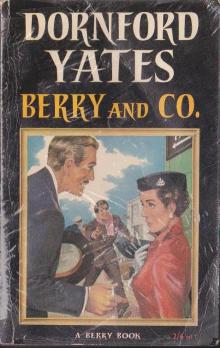 Berry and Co.
Berry and Co.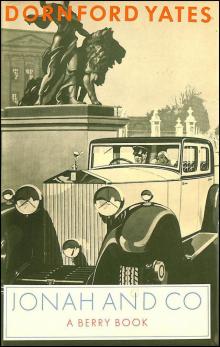 Jonah and Co.
Jonah and Co.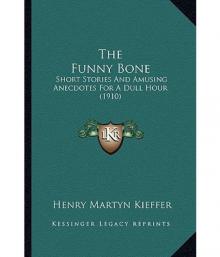 The Funny Bone: Short Stories and Amusing Anecdotes for a Dull Hour
The Funny Bone: Short Stories and Amusing Anecdotes for a Dull Hour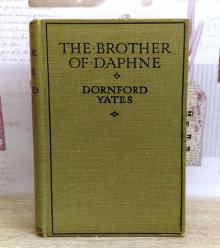 The Brother of Daphne
The Brother of Daphne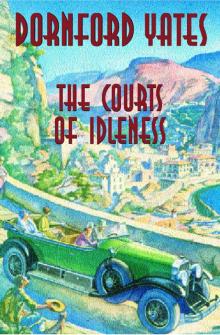 Courts of Idleness
Courts of Idleness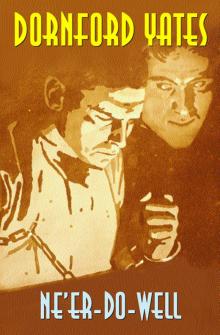 Ne'er Do Well
Ne'er Do Well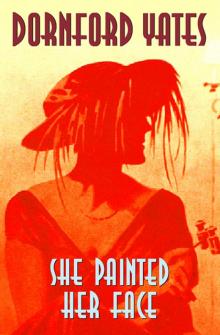 She Painted Her Face
She Painted Her Face Safe Custody and Laughing Bacchante
Safe Custody and Laughing Bacchante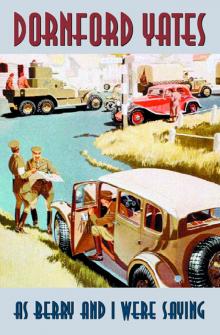 As Berry and I Were Saying
As Berry and I Were Saying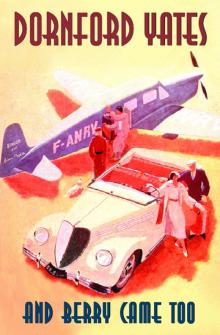 And Berry Came Too
And Berry Came Too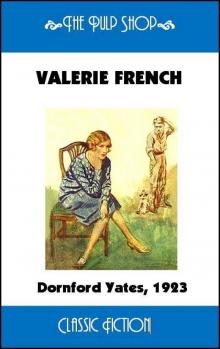 Valerie French (1923)
Valerie French (1923)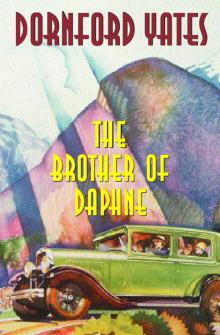 Brother of Daphne
Brother of Daphne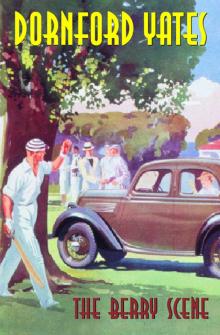 Berry Scene
Berry Scene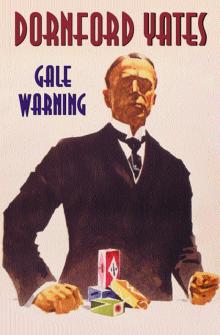 Gale Warning
Gale Warning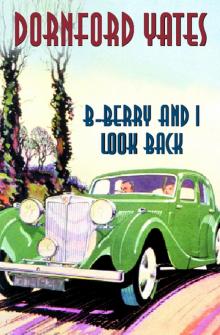 B-Berry and I Look Back
B-Berry and I Look Back Storm Music (1934)
Storm Music (1934)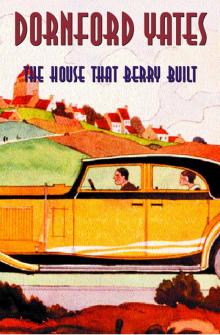 House That Berry Built
House That Berry Built